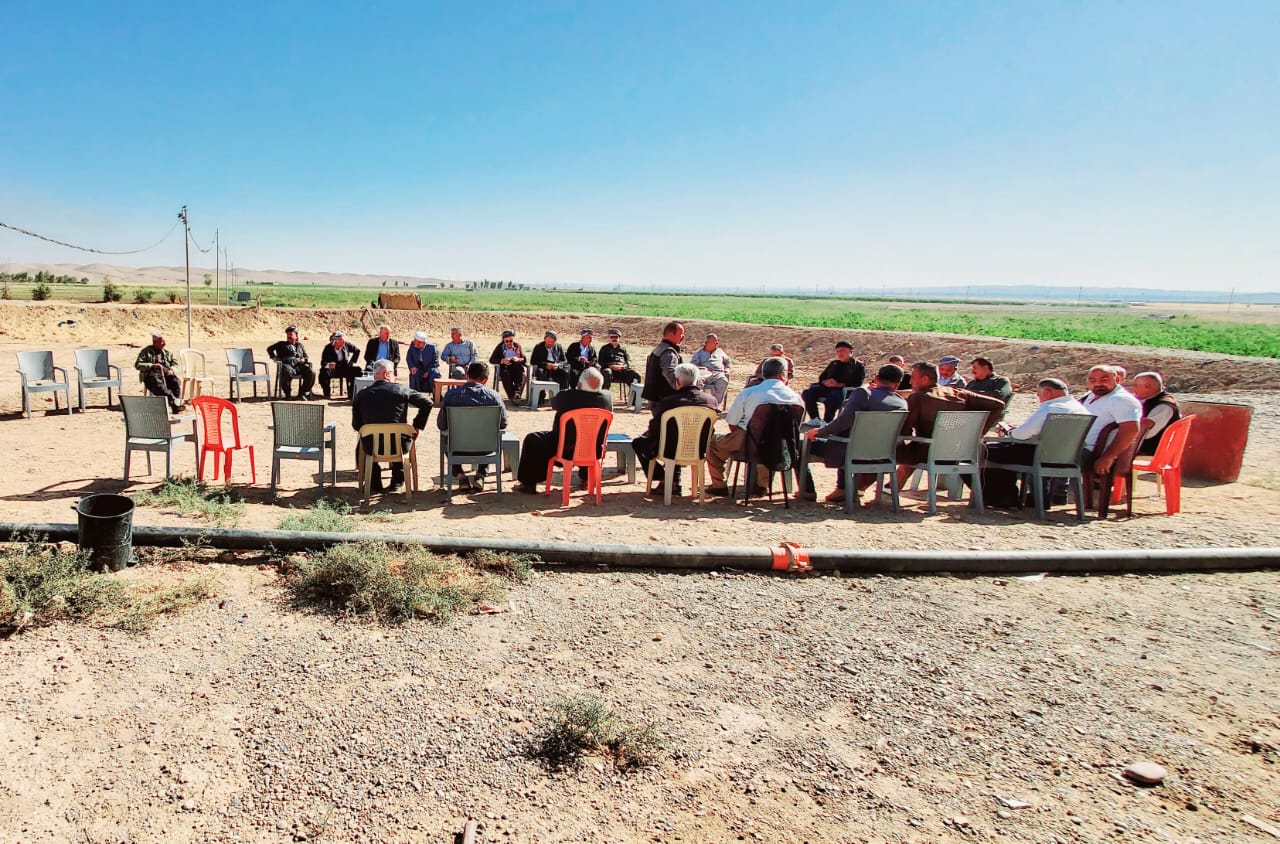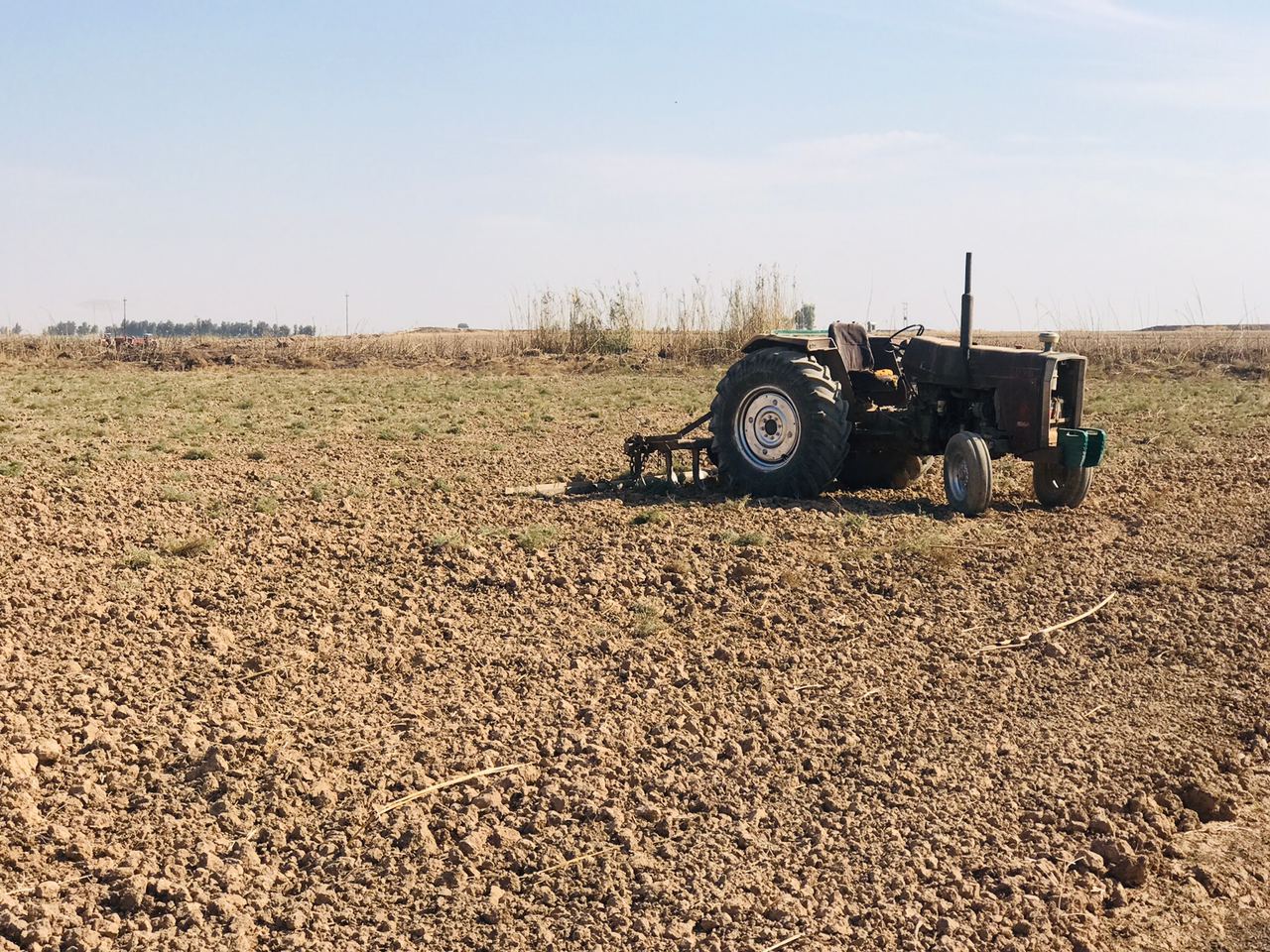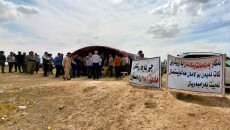A number of Kurdish farmers presented their evidence to the Iraqi Federal Court in its third session, whose deliberations were devoted to the issue of ownership of 8,200 hectares (82,000 Donums) of agricultural land in the multi-ethnic, oil-rich province of Kirkuk, and the court is scheduled to issue its decision in this regard on April 24th.
On Sunday, March 31, the third session of the Federal Court was held on the issue of ownership of 3,800 hectares of agricultural land in the villages of the Talabani and Kakaiy area in Daquq District south of Kirkuk, and another 4,400 hectares in the Dubiz District and the Sargaran and Pirdy (Alton Kupri) sub-districts.
Ezzedine Talabani, a farmer and one of the notables of the Talabani area in Daquq district, told KirkukNow, “A portion of the 38,000 donums was given by decision of the Kirkuk Agriculture Department to Arab farmers who left the region after the fall of the Baath regime in 2003 and returned again, and ownership of the other portion was frozen by a decision of the same department, no one has the right to dispose of it before resolving ownership disputes regarding it.”
“During the session, the two parties to the case, represented by the Kurdish farmers and the Kirkuk Agriculture Department, presented their evidence, and the judges of the Federal Court referred the case to an audit committee... This means that the case will soon be resolved,” Talabani added.
In the seventies of the last century, according to a decision of the Supreme Revolutionary Command Council and the Northern Affairs Committee during the rule of the Baath Party, most of the agricultural lands belonging to Kurdish and Turkmen farmers were distributed in several regions of Kirkuk with agricultural contracts to Arab farmers who were broought from central and southern Iraq and settled in Kirkuk, as part of a process Arabization and deportation of Kurdish and Turkmen families.
Ownership of agricultural lands is one of the complicated issues in Kirkuk Governorate and other disputed territories that have remained suspended for 20 years and resulted in tension and clashes between Kurdish, Turkmen and Arab farmers.
The Kurdish and Turkmen farmers claim they are the real owners of the lands confiscated by Saddam regime and given per contracts to Arab settlers.

The northern oil-rich city of Kirkuk, located 238 kilometers north of Baghdad, is an ethnically mixed province for 1,7 million Kurds, Sunni and Shiite Arabs, and Turkmen. It has long been at the center of disputed territories between Baghdad and Erbil.
In the new cabinet, headed by Muhammad Shia al-Sudani, the Supreme Committee for the Implementation of Article 140 has been reactivated, and one of its main tasks is to resolve the ownership of those agricultural lands.
Under the Iraqi constitution, which the majority of Iraqis voted for in 2005, the fate of the disputed territories must be decided after the completion of the three stages of normalization, census, and referendum, according to Article 140, which was scheduled to be implemented until the end of 2007.
Regarding the 4,400 hectares located within the boundaries of the Dubiz district, it was also referred to the committee after taking the statements of both parties.
The fourth session of the Federal Court is scheduled to be held on April 24, and it will likely be the last session on the case in which a final decision will be issued.
Agricultural lands in Kirkuk and a number of Iraqi governorates were distributed during the Baath Party rule to Arabs coming from central and southern Iraq in the form of contracts that were implemented until the fall of the Baathist regime in 2003, after which they left those lands.
The return of these farmers to their lands came while, on September 23, 2020, the Iraqi Ministry of Justice issued a decision to seven Iraqi governorates, including Kirkuk, stressing the suspension of agricultural contracts dating back to the period of Baath Party rule. However, the Kirkuk Agriculture Department refuses to implement the decision.
The disputed territories refers to a constitutional term describing the political and administrative situation in Kirkuk province and the areas that witnessed administrative and demographic changes, including parts of the provinces of Diyala, Ninewa and Salahaddin, due to the policies of the Iraqi government from 1968 up to 2003.
Up to the present, only part of the first phase of normalization for article 140 has been implemented, which led to tensions over administrative and security posts, disputes over ownership of lands and farms and several other issues leaving the area in poor conditions in terms of public services, stability and security.






